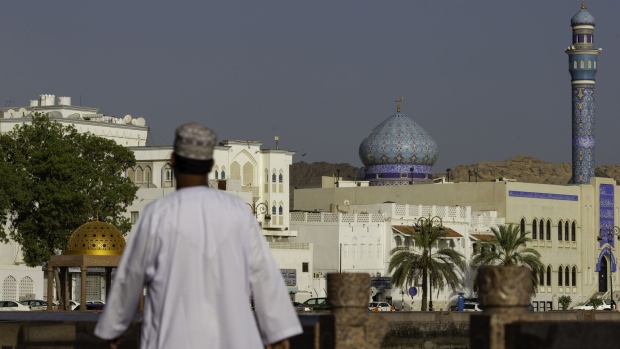Dec 18, 2023
Oman Seeks to Avoid Financial Gray List, With Iran Ties in Focus
, Bloomberg News

(Bloomberg) -- Oman, a Gulf state known for its neutrality and close ties to both the US and Iran, is gearing up for a key review from a global watchdog on dirty money — hoping to avoid the fate of the neighboring United Arab Emirates.
A delegation from the Paris-based Financial Action Task Force is set to visit Muscat in late January, paving the way for a review later in 2024. After witnessing the UAE’s demotion to the so-called gray list in March 2022, Omani officials have been working to prevent a similar outcome.
Unlike the UAE, which adopted crypto-friendly policies and has a thriving luxury property market open to international investors, Oman’s economy is smaller and more conservative. That, coupled with recent oversight measures, makes Muscat well-positioned to avoid a gray-list designation, according to people familiar with the FATF proceedings.
Still, local officials acknowledge concerns over Oman’s ties to Iran, a country that’s facing significant US sanctions.
“The greatest vulnerability is our location,” central bank chief Tahir Al Amri said in a rare interview from his office in Muscat. “This is the main risk. It’s because of the relationship with Iran.”
The Omani leadership leveraged its close ties to Washington and Tehran during the Obama administration, hosting important diplomatic contacts that ultimately paved the way for the 2015 nuclear deal. Now, with conflicts swirling in the Middle East and Eastern Europe, Muscat’s geopolitical neutrality is set to come under the microscope.
Treasury Meeting
The Central Bank of Oman has licensed two Iranian banks and also seen some inflows of Russian money, according to Al Amri. He said the government takes a nuanced approach, closely tracking unilateral and multilateral sanctions from abroad while recognizing there are many “legitimate people” from sanctioned nations.
“If you have Iranian money coming in via trade, are we saying that every single person with an Iranian passport or business is under sanctions? The US isn’t saying that,” Al Amri said. “The actual money flow isn’t supposed to be taboo and sanctioned, even with Russia.”
Brian Nelson, the US Treasury Undersecretary for Terrorism and Financial Intelligence, visited Muscat late last month to discuss bilateral cooperation on money flows tied to Iran and Russia, according to Al Amri.
Weeks earlier, the Biden administration sanctioned a group of companies including Oman-based boutique investment firm Tadawul Financial Services SAOC, which authorities said had been leveraged to house and manage Russian illicit assets.
The company’s operations are being reviewed, according to Al Amri. “Wherever there are gaps, we make sure we fix them,” he said.
Reforms
A report by the International Monetary Fund found gray-listing by the FATF leads to “a large and statistically significant reduction in capital inflows.” The Washington-based lender estimated that on average foreign direct investment and portfolio inflows each declined by around 3% of gross domestic product.
While the UAE’s $509 billion economy weathered its designation better than most countries and the nation is poised to exit the list early next year, Oman — with a GDP of roughly $108 billion that’s heavily dependent on oil and natural gas exports — isn’t taking any chances.
Muscat recently set up its own sanctions list, designating individuals from Afghanistan, Syria and Nigeria. It’s part of a raft of reforms that also included guidelines on virtual assets, ultimate beneficial ownership and corporate registration.
Dollar Peg
Al Amri also touched upon Oman’s plans to diversify its roughly $15 billion in foreign reserves. The country aims to cut its dollar holdings to about 65% in the next five years from 80% while boosting its exposure to the euro, British pound and Australian dollar, he said.
Even so, he reiterated the Gulf state is committed to its dollar peg.
Read More: Why Gulf Dollar Pegs Survive Through Wars, Oil Shocks: QuickTake
That’s despite growing ties with China, where the bulk of Omani oil and natural gas is sold. Saudi Arabia, the biggest economy in the region, has said it’s open to the possibility of settling some trade with Beijing in yuan, though its officials have downplayed the prospect of that happening on a large scale.
“The peg has served us well and I believe going forward it will do the same,” Al Amri said. “The thing that would render it ineffective is if there’s a bigger global shift, which we don’t see happening very soon.”
©2023 Bloomberg L.P.





